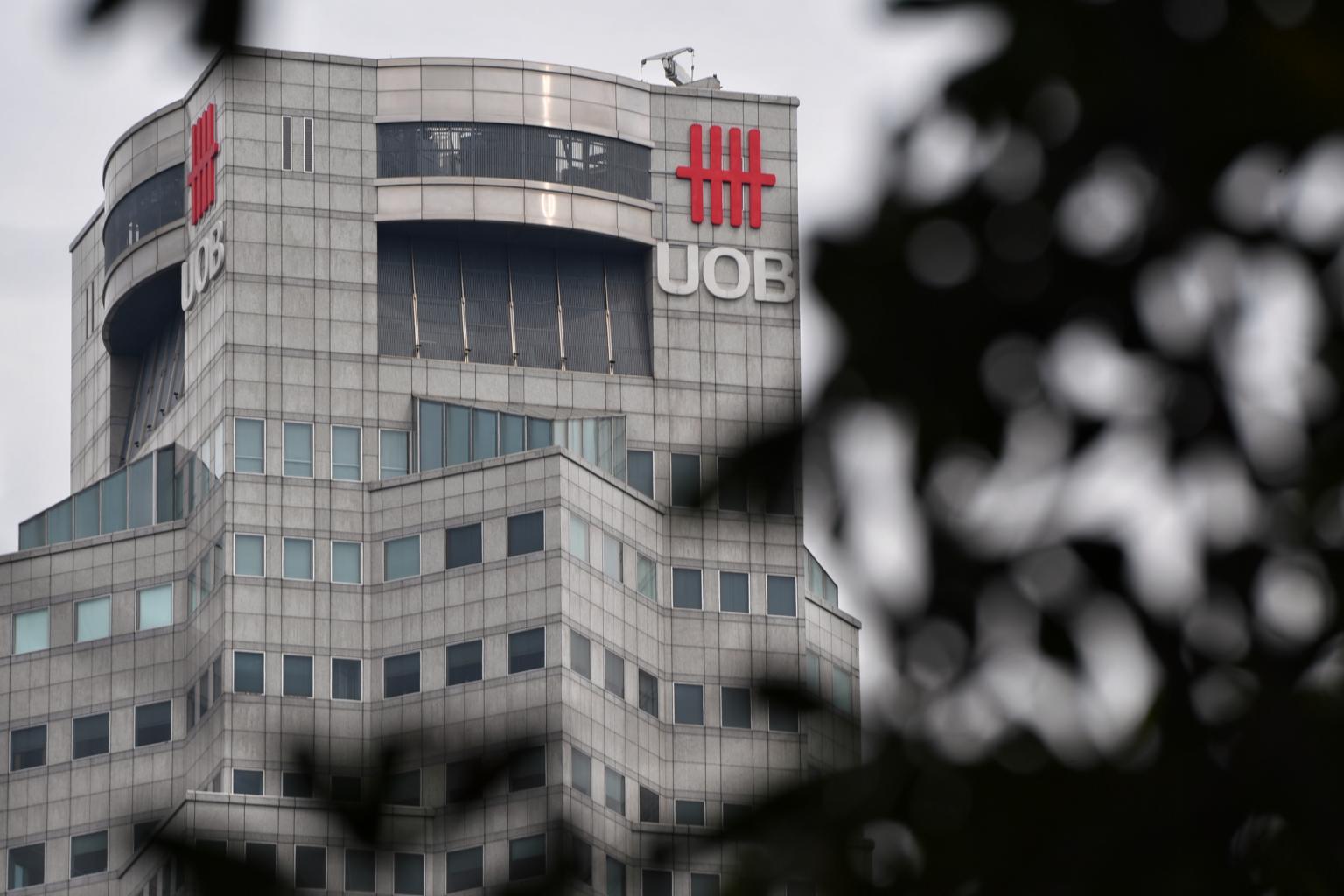UOB looking at Citi's assets; Q1 profit up 18% to $1 billion on record fee income
Sign up now: Get ST's newsletters delivered to your inbox

The lender's net profit jumped to $1 billion from $855 million a year ago.
ST PHOTO: KUA CHEE SIONG
SINGAPORE - UOB, like DBS Group last week, posted a strong start to 2021 with broad-based growth driven by record fee income.
Singapore's third-largest bank topped market forecasts, recording an 18 per cent increase in first-quarter earnings - its first rise in more than a year. The lender's net profit jumped to $1 billion from $855 million a year ago, and beat the $926 million average estimate of three analysts polled by Bloomberg.
UOB chief executive Wee Ee Cheong expects this momentum to continue as economic and business activity picks up and market sentiment improves across the region, starting with Singapore and Greater China.
"Across our key markets, we are seeing robust credit demand from our large corporate and institutional clients... Asia's prospects remain bright. Even so, we stay vigilant and nimble," he said.
Mr Wee told a media briefing on Thursday (May 6) that UOB will look at Citigroup's assets in the markets the foreign bank is exiting. It joins peers DBS and OCBC Bank in doing so.
"We are always open to acquisition opportunities... as long as it's a strategic fit and at a right price, and it has to make sense for the long term," said Mr Wee.
Citi said last month it will exit from its consumer franchises in 13 markets, 10 of which are in Asia, as it refocuses on its more lucrative institutional and wealth management businesses in these markets.
UOB is still waiting for details, which are expected to be released later this month, said its group chief financial officer Lee Wai Fai, adding that the bank is keen to look at assets that are incremental to its franchise.
UOB's net interest income dipped 4 per cent to $1.53 billion as loan growth was more than offset by the impact of rate cuts on margins across the region.
Net interest margin - a key gauge of banks' profitability - was stable at 1.57 per cent.
Fee income was 24 per cent higher at $638 million, led by wealth, loan-related and fund management fees.
Trading and investment income rose 10 per cent to $246 million, largely due to higher net gains from investment securities.
The bank's impairment charges fell 29 per cent to $201 million. Its non-performing loans (NPL) ratio improved to 1.5 per cent, from 1.6 per cent a year ago.
Credit costs fell seven basis points to 29 basis points as the bank set aside lower allowance for impaired loans due to payment recoveries and lower NPL formation.
Annualised earnings per share for the quarter stood at $2.36, up from $2 a year ago.
Despite the improved earnings, it is slightly premature to write back provisions, said Mr Lee.
"While NPL emergence is low, we are conscious that the various support measures may have a lagging effect on NPL, so we remain cautious," he said, adding that the bank will slow down the addition of provisions.
Mr Wee called Covid-19 a "black swan" that caught everyone by surprise. "While the earnings are good, we continue to provide and make sure our capital is strong," he said.
UOB had total allowances of $4.7 billion as at the end of the first quarter, of which $3 billion was for general provisions or allowances for non-impaired assets.
The bank's loans under moratorium have remained unchanged from January.
Loans under government relief programmes fell from $11 billion in December to $3 billion in January as debt holidays across the group's markets ended, making up 1 per cent of the bank's total loans.
The bank expects its profit to rebound this year, driven by high single-digit loan growth, double-digit non-interest income growth, a stable cost-to-income ratio and lower credit costs.
DBS last Friday posted a 72 per cent jump in first-quarter earnings to $2.01 billion. OCBC will report its results on Friday.
UOB shares were trading at $26.05, down 0.9 per cent, at 1.37pm on Thursday.


